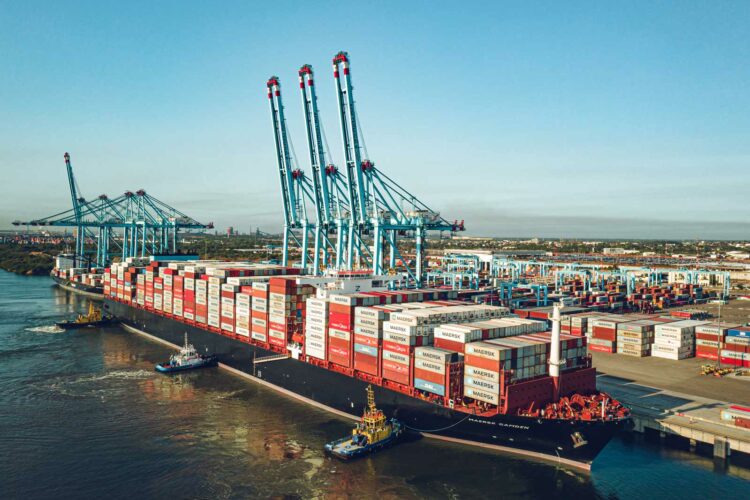APM Terminals Nigeria has said that multiple examination of cargoes by government agencies operating at the nation’s seaports is hampering port competitiveness.
This was disclosed by chief financial officer of APM Terminals Nigeria, Courage Obadagbonyi, during a recent panel session titled “Navigating Business Growth in an Era of Volatility and Uncertainty,” at the 30th Nigerian Economic Summit in Abuja.
Obadagbonyi supported the National Single Window initiative of the federal government, saying it is a crucial step towards enhancing the competitiveness of Nigerian ports.
He also emphasised the need for improved coordination among stakeholders within the trade ecosystem.
According to him, inspecting cargo at multiple stages by various agencies leads to delays and hampers the competitiveness of our ports.
“While stakeholders and agencies must fulfil their statutory roles, the current practice of inspecting cargo at multiple stages by various agencies leads to delays and hampers the competitiveness of our ports. We must therefore expedite the implementation of the single window initiative.”
Obadagbonyi highlighted that volatility is a global issue, exacerbated by challenges such as issues surrounding fiscal policies, foreign exchange management, and price regulations.
“In today’s interconnected world, events in one region can have unforeseen impacts elsewhere,” he explained. He referenced the ongoing ramifications of the Russia-Ukraine conflict, which has lasted over two years and has significantly affected global food supplies and inflation.
“Companies must develop robust risk management frameworks to better understand the interdependencies of local and international events and create effective business continuity plans,” he added.
He also cautioned against overregulation, which he argued hinders operators’ ability to price their services competitively. Citing comments from Modupe Kadiri, CFO of MTN Nigeria, who noted that the telecommunications company has not been permitted to adjust tariffs in a decade, Obadagbonyi pointed out that such regulations stifle reinvestment in the country.
“Barriers of this nature are factored into the cost of capital for Nigerian projects, making it challenging for global investors, who have limited resources, to fully capitalise on the investment opportunities in our market,” he said.
The panel discussion also featured insights from notable industry leaders, including the Chief Executive officer of Mondelez West Africa, Oyeyimika Adeboye and GMD/CEO of Techno Oil Limited, Nkechi Obi.
They focused on business strategies that can navigate the challenges posed by the current economic climate.
In a separate interview following a session on fiscal reforms, which included participation from the Minister of Finance and representatives from the World Bank, Obadagbonyi commented on the remarkable engagement witnessed at the summit.
“Having policymakers of such high calibre in attendance lends credibility to our conversations and offers hope that the suggestions made can lead to meaningful change,” he said.
“It is essential that we balance the necessary fiscal frameworks with initiatives to ensure food security, as both are critical for sustainable growth in the short and long term.”











